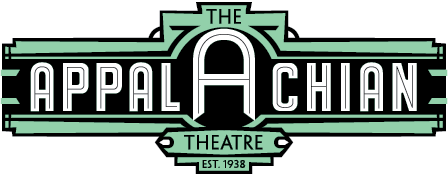AppState Appalachian Studies presents
Our Movement Starts Here
Tuesday, April 15, 2025 at 6 p.m.
FREE - General Admission Doors open at 5:30 p.m.
All Ages (children under 17 admitted with parent/legal guardian)
The award winning documentary including the History + Best Documentary Film award at the 2024 Long Leaf Film Festival at the North Carolina Museum of History, and Best Feature-Length Film at the 2024 Social and Economic Justice Film Festival in San Francisco.
Our Movement Starts Here - Directed by John Rash & Melanie Ho. Produced by Rash, Ho & Southern Documentary Project. The story of a rural community in the American South that inspired the international environmental justice movement and articulated the concept of environmental racism by fighting the state of North Carolina's toxic landfill.
Runtime: 57 minutes - Not Rated
ABOUT THE DIRECTORS:
Co-Directors John Rash and Melanie Ho both work as professors and filmmakers at the Southern Documentary Project, an institute of the Center for the Study of Southern Culture at the University of Mississippi. Their work aims to preserve the stories of the American South, especially those from underserved and under-documented communities. John Rash was born in North Carolina and received his MFA in Experimental and Documentary Art from Duke University. Melanie Ho was born in Jacksonville, Florida and received her MFA from UCSC’s Social Documentation program.
ABOUT THE PANELISTS:
Ms. Dollie Burwell is an activist and leader in the Environmental Justice Movement. In the 1980s and 90s, Burwell became known as the Mother (and now Grandmother) of the U.S. Environmental Justice Movement due to her leadership in the grassroots, non-violent resistance to the dumping of toxic chemicals in her home town of Warren County, NC. Burwell’s journey into political participation and organizing started at 12 when she worked on a voter registration project. She continued her education by taking classes at Durham College and Shaw University. While in college, Burwell began organizing with individuals who were denied government housing based on their race. Burwell became a veteran of the Civil Rights movement and served on the Board of Directors for the Southern Christian Leadership Conference. Burwell's work resulted in Warren County becoming known as the “Birthplace of the Environmental Justice Movement.”
Rev. William Kearney developed the Warren County Environmental Action Team (WCEAT) a network of organizations and individuals working together to record, celebrate, and share Warren County’s environmental justice legacy, natural resources, and diverse cultures. He also formed the Warren County African American History Collective (WCAAHC), an effort to collect and create a cohesive history of the area with the goal of making a better future for all local residents. Kearney also serves as a community engaged researcher UNC Center Health Promotion and Disease Prevention and a Reverend at Coley Springs Baptist Church.
Ms. Jenny LaBalme photographed the 1982 Warren County protests as part of a documentary photography class she took when she was a student at Duke University. She published her photos in a small book, A Road to Walk. Jenny spent almost two decades working first as photojournalist for The North Carolina Independent (now INDY Week), and later as a journalist for the Mexico Journal (Mexico City, Mexico), The Anniston Star (Anniston, AL) and The Indianapolis Star. She spent 14 years as executive director of the Indianapolis Press Club Foundation, a non-profit organization that raises and manages funds to provide journalism awards, scholarships, and paid summer internships for students at Indiana colleges and universities. The many outlets in which Jenny’s Warren County photos have appeared include The Washington Post, National Public Radio, Museum of Modern Art, and the Smithsonian’s Anacostia Community Museum.
John Rash works as a professor and filmmaker at the Southern Documentary Project, an institute of the Center for the Study of Southern Culture at the University of Mississippi. His work aims to preserve the stories of the American South, especially those from underserved and under-documented communities. John was born in North Carolina and received his MFA in Experimental and Documentary Art from Duke University.
Learn more at The Southern Documentary Project.
Know Before You Go
THIRD PARTY SELLERS / SECONDARY MARKET
Tickets for events at the Appalachian Theatre of the High Country are sold exclusively through the theatre box office and online at AppTheatre.org . We DO NOT partner with third party sellers. We DO NOT accept tickets sold on the secondary market. We reserve the right to decline entry if you are not the original ticket buyer.
Tickets purchased from alternative sources may be any or all of the following:
· Not authentic
· Over-priced
· Invalid (cannot be used to enter the event)
The Appalachian Theatre of the High Country (ATHC) is not responsible for tickets purchased from third party vendors and is not able to honor, replace or refund invalid tickets. Please purchase your tickets from approved sources.
PARKING INFORMATION
Please carefully read the information and instructions below to ensure the best experience when you visit the theatre.
Metered street parking and pay lots are monitored and parking is enforced Monday – Saturday from 8 a.m. until 5 pm except on town observed holidays.
Parking is $1.00/hour at all metered parking spaces.
Metered & lot parking is free all day on Sundays and every day after 5 p.m.
Parking in Appalachian State parking lots (e.g. the Peacock Lot accessed off of Howard Street) is available for free on week nights after 7 p.m. and on non-gameday/event weekends on Saturday and Sunday.
Accessible Parking:
Parking in metered parking areas is free, as long as the correct placard/license plate is displayed and up to date.
ATHC does not own or operate any parking lots or meters and cannot accept responsibility for any parking mishaps or fees.
Visit our HEALTH & SAFETY PROTOCOLS page for the latest in show attendance requirements, FAQs and other information.







